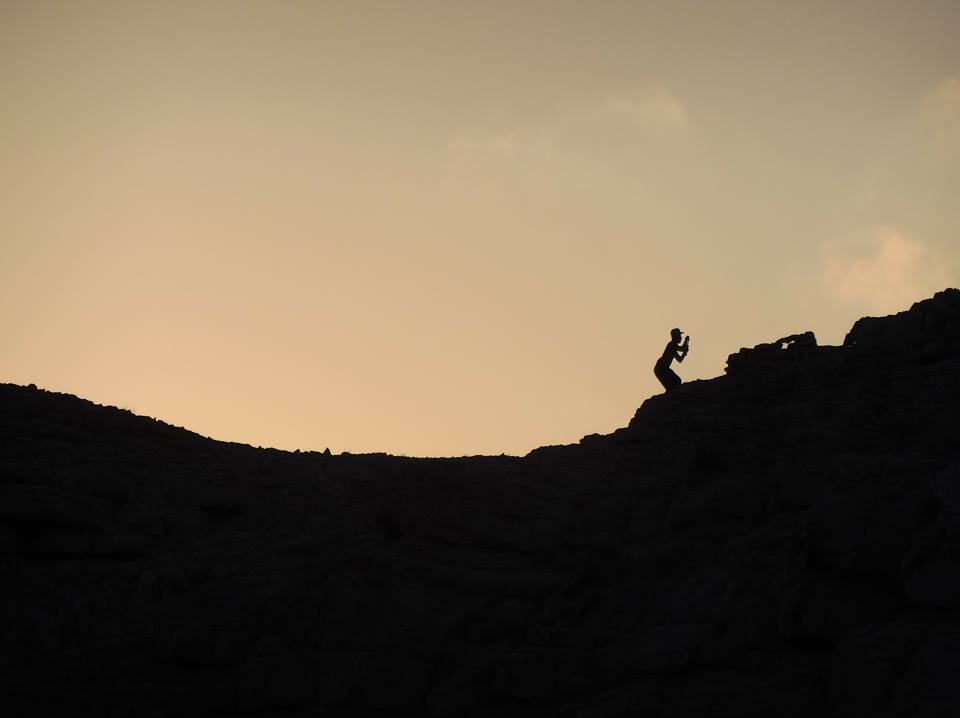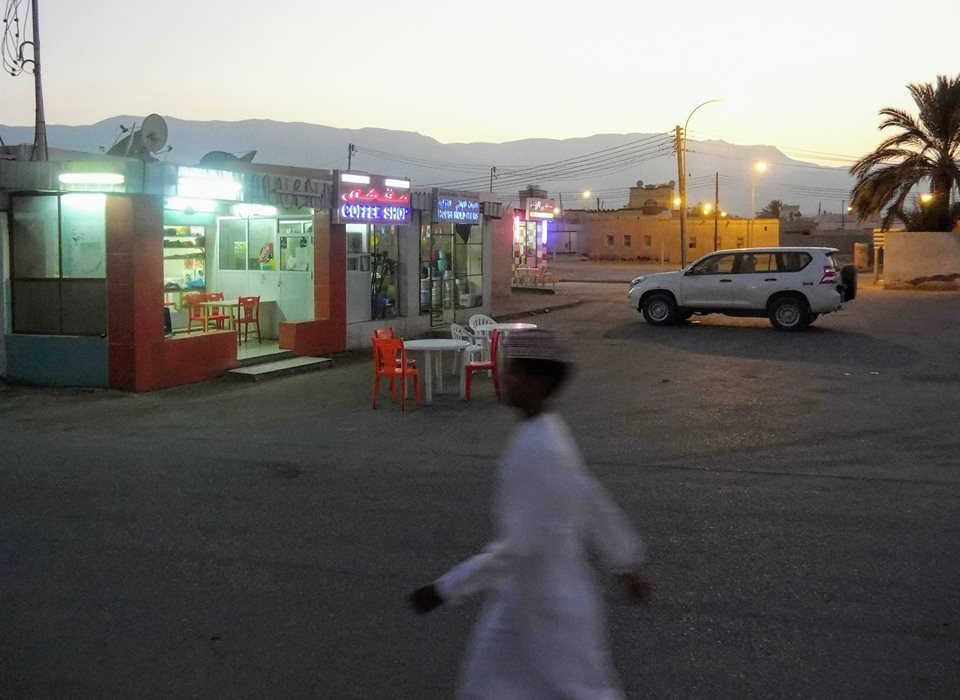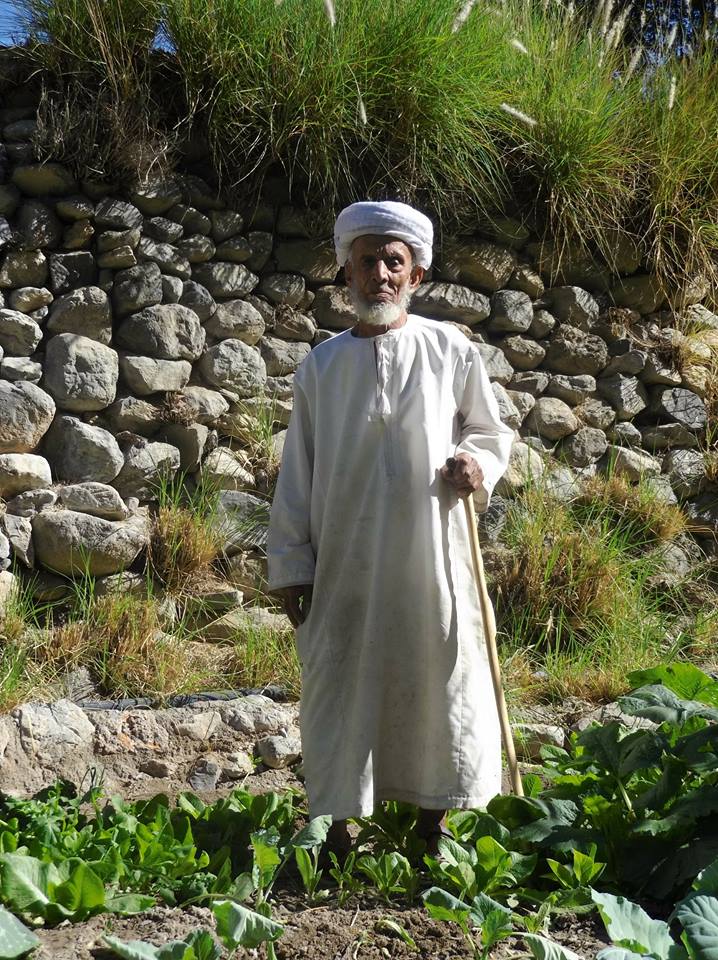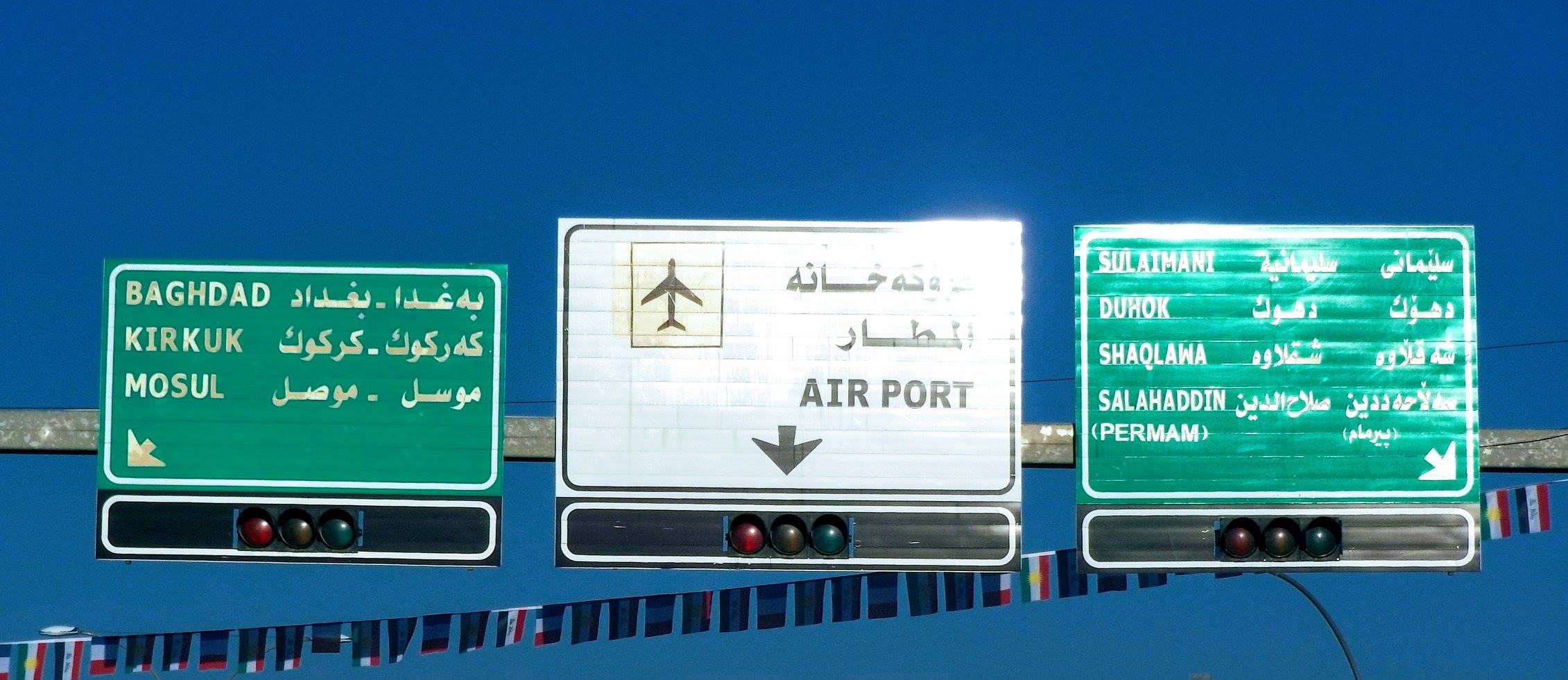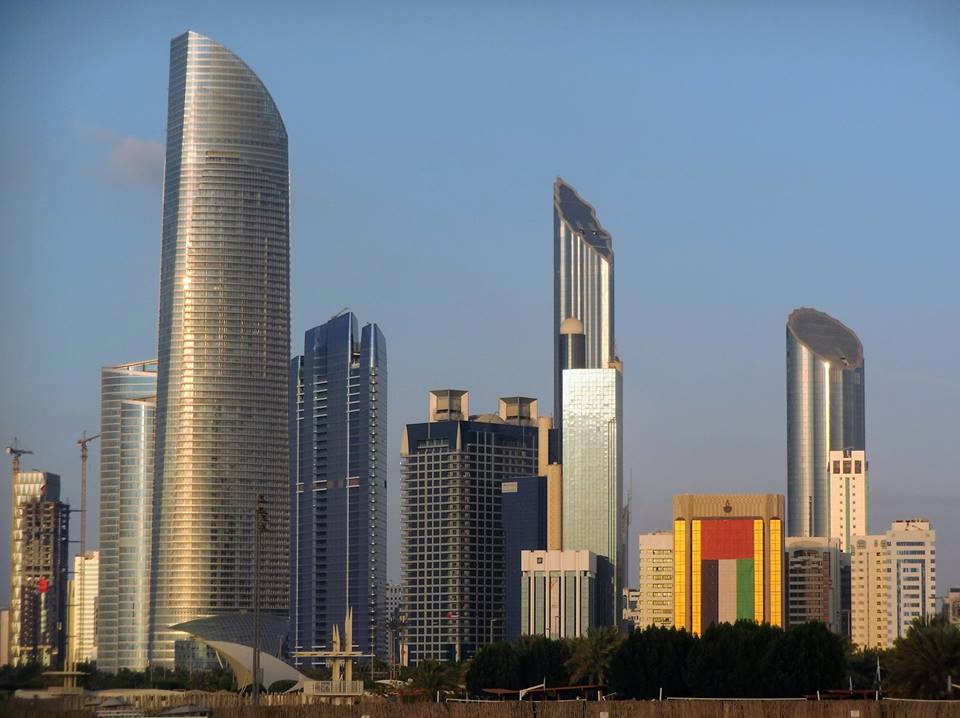After I’ve walked for an hour up the narrow gorge, crisscrossing the creek a few times, the silence is broken by hammering. A man is repairing the trail, striking blow after blow that echoes up the mountainside.
He is working on removing a boulder, and it seems stuck. I offer him some banana and we share one without speaking. Some bags of cement are lying about, and I wonder if the man carried them all the way up here by himself. He motions to me to give the boulder a try, but I can’t even budge it.
On the way down I skinny-dip in one of the calm pools. The water is cool and my feet are immediately attacked by tiny fish nibbling away on my skin, giving me a free pedicure. It tickles.
My giggling rises to the blue sky.
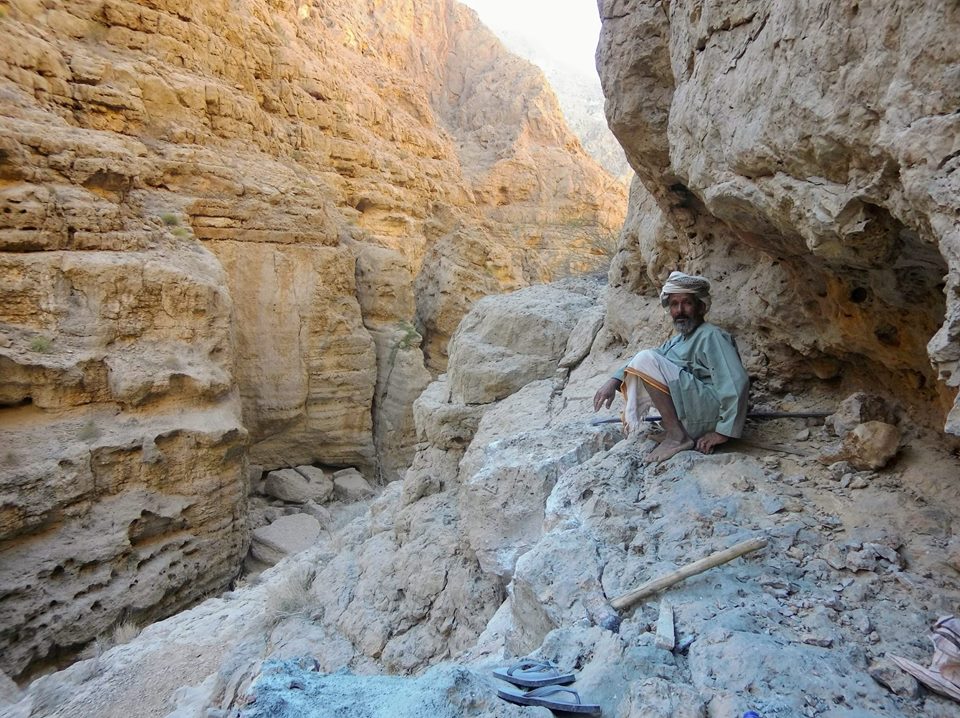
The Musandam Peninsula jots out like a hand with spreadout fingers into the Straits of Hormuz. Pointing towards Iran, it’s a place for fishing, tourism, and smuggling cigarettes and electronics to the Islamic Republic.
I spend the next day on a dow boat with a group of other visitors. We talk and drink tea with rosewater, saffron and cardamom. Wildlife and fishing villages pass by. Dolphins occasionally jump along the boat, either because they enjoy it or because the captain corners them against the cliffs so we can see them.
Lunch is served. We rest for a bit, and then swim.
The sun is strong and the wind is cool. The mountains are high and the villages only accessible by boat. How was it here before electricity and outboard motors?
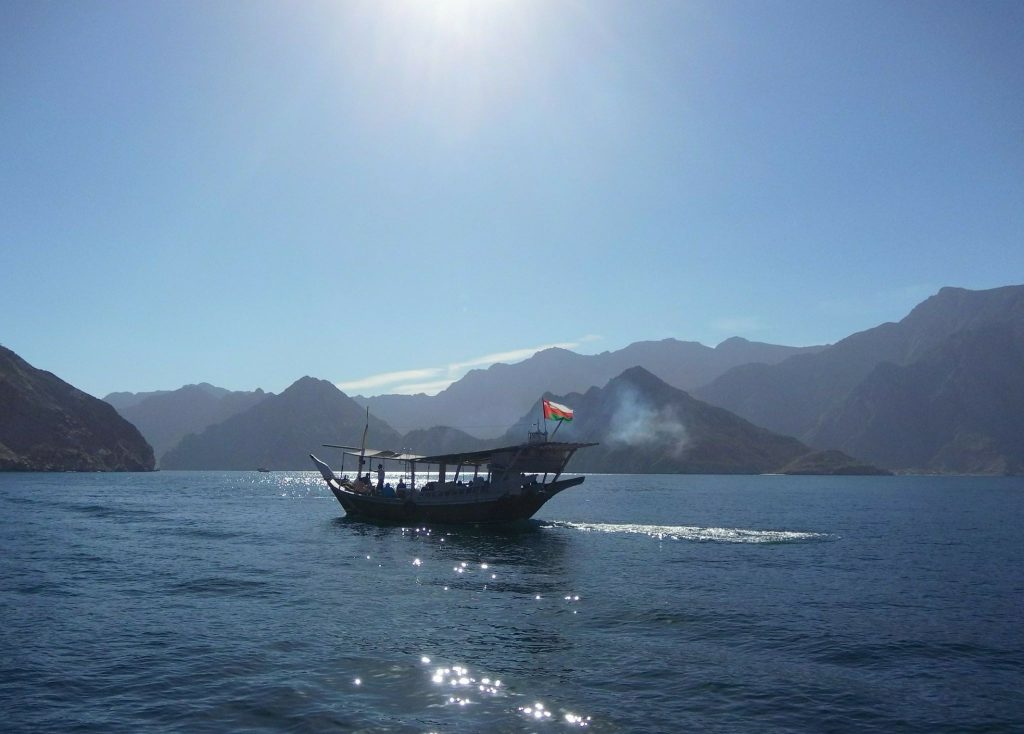
We pass Telegraph Island, an old outpost of the British Empire. Here Her Majesty’s underlinings were posted when the telegraph cable ran from Basra via Musandam to the Subcontinent. An engineering achievement in its day, but the poor sods on the island were driven crazy by boredom creating the expression “going around the bend”.
A bird of prey eats a fish on a rock and poses for a perfect picture. The boatsman asks if I can give him the photo and I share it with Bluetooth. Times have changed and everything is still the same.
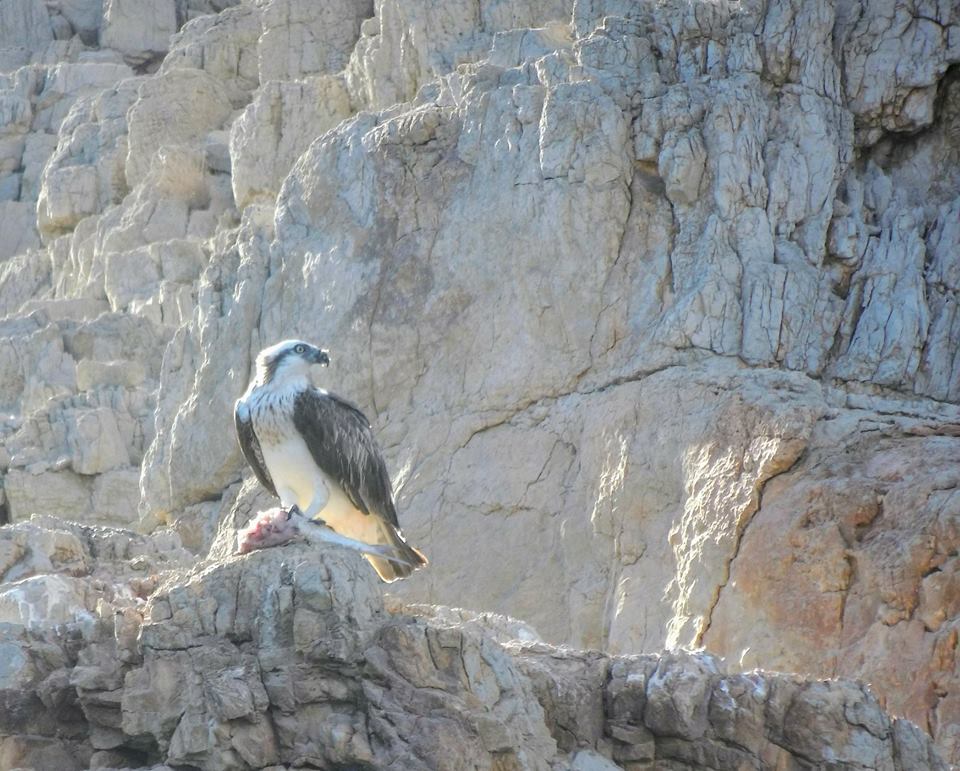
Back on shore in the main town of Khasab I attempt a walk along the waterfront, but as it has been sacrificed to a cruiseship terminal there is not much to see. Dinner is a perfect Indian meal followed by tea and a smoke in a shisha café.
The wind picks up and dust is flying everywhere, but in my corner of the patio everything is calm. I sit alone. No one even looks at me.
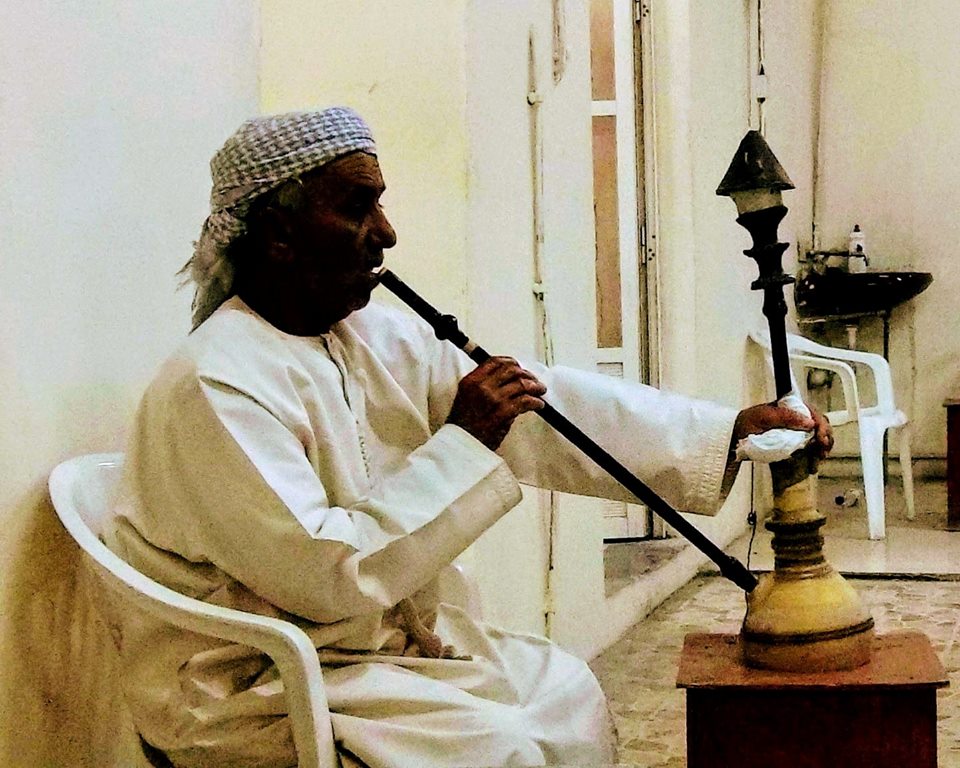
War is crushing Yemen. Saudi Arabia is percolating. Across the sea, Somalia, Pakistan and Iran are marred by different levels of violence. The Emirates, of course, are calm, but for a tourist there’s not much to see unless you wanna go shopping.
In a neighborhood of trouble, Oman is an oasis of tranquility. But for how long?
Sultan Qaboos is the nation’s almighty ruler and his word has been law for the past 46 years. Political dissenters are locked up or, worse, just disappear. At 76 the Sultan won’t be around forever. What happens when he’s gone?
Whether they call themselves “Sultans” or “Presidents”, dictators will eventually fall. And the country they ruled might be lost in violence for generations.
Your next vacation should go to Oman. Enjoy the sand dunes, the food and the winding mountain roads before they become inaccessible. Rent a car and pitch a tent on an empty beach; walk up a wadi for the view and a swim; drink and dance the night away at a local nightclub.
Do it now.
